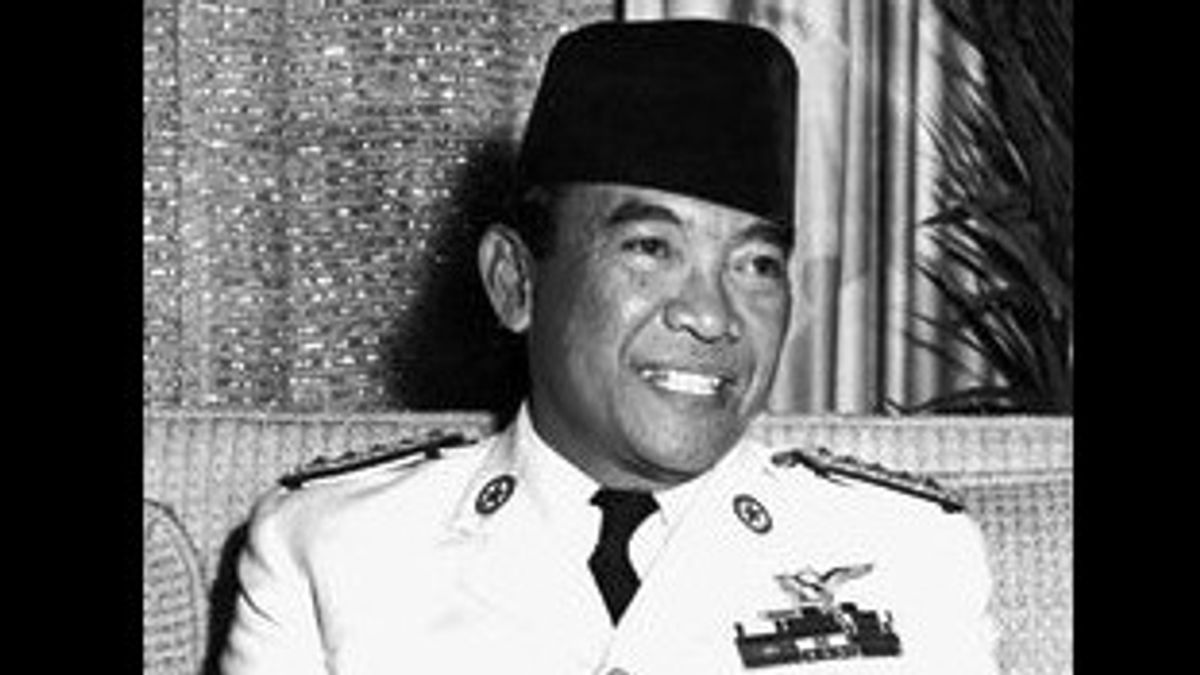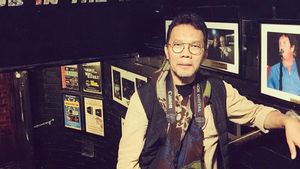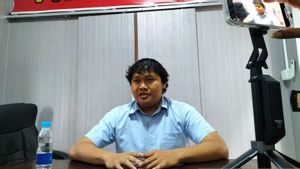JAKARTA - Often times an Indonesian child is taught to use greeting words according to the situation and relationship between people. The forms of greeting words then become many and varied. In fact, in the early days of Indonesian independence, there were only a few greetings that were developed and popular, one of which was the word "Bung".
Because of the popularity of the word "Dude", it can be used with anyone. It doesn't matter if someone works as a court clown entertainer or a president. People at that time believed that the phrase 'bung' meant equality and brotherhood. Gradually, the greeting "dude" became so popular.
“The greeting 'bung' that was popular at the start of independence represented an equivalent greeting. And these greetings are used anytime, anywhere, by anyone, and for anyone. That way, the choice of the founders of this country towards Indonesian was essentially a choice to obtain a stable language for an independent nation, namely a democratic language, "Agus R. Sardjono in the book Languages and Ghosts Bonafiditas (2001).
As proof, Putra Sang Fajar, Soekarno was also widely known by the greeting "Bung" alongside his name. So, the people also know the proclaimer of independence by the name Bung Karno, which is believed to be a marker between himself and the Indonesian people who do not have a dividing line. The same thing was pinned on other national figures, such as Bung Hatta, Bung Sjahrir, and Bung Tomo.
Then, the word "dude" is often equated with the term "Citizen" in the French Revolution or "Comrade" in the Russian Revolution. It is this fact that makes the greeting "Bung" sound revolutionary with the presence of additional meanings such as revolutionary brothers, Indonesian nationalist brothers, or civilian brothers.
As told by Seno Joko Suyono and Andi Dewanto in their writings in Tempo Magazine entitled Pipa Cangklong, Rubiyem, and Colonel Sanders (2007), the greeting "Dude" also played a part in igniting the spirit of the Indonesian people to fight for independence.
Once upon a time, in 1945 Bung Karno asked the painter Affandi to paint a poster of struggle. Bung Karno emphasized that the order must contain pictures of people in chains and chains that had been broken. It so happened that Dullah was a model at that time.
After finishing the drawing, Affandi seemed to need a word that was pithy, if it could raise the spirit of struggle. Luckily, the famous poet Chairil Anwar passed. Without further ado, painter Soedjojono - grandfather of Arian Arifin Wardiman, vocalist of the band Seringai - asked what words were suitable for Affandi's paintings. "Lightly, Chairil answered, 'Dude, come on, man!'"
The effect is really powerful. Instantly, the rhythm of "Dude, Come on, Bung" boomed as a heroic expression that seemed to be able to evoke a narrative of protecting the entire nation and all the blood of Indonesia from the invaders. Who would have thought, at that time Chairil was inspired by the words of the prostitute Senen in offering his services to a masher: Dude, come on, dude !.
At the end of 1949, the greeting "Bung" began to decline, replaced by the greeting "Bapak" or "Brother". Ajip Rosidi, in Sundanese Rhino and Sundanese Tiger: Failure of Language Lessons (2011), explained that this new greeting created a distance between the people and the officials.
"Officials consider themselves or are considered by others as a father whose position is comparable to that of the father in the family, has the authority that all his words must be obeyed by all the people," wrote Ajip Rosidi.
Even so, the term "dude" was still used frequently until the 1970s. The difference is, the call has been set apart between their peers. For example, the call bung is used as a connection for intimacy, it can be seen in the big screen film by Syamsul Fuad entitled Benyamin Jatuh Cinta (1976).
In one scene, brothers Grace (Grace Simon) and Yuni (Juni Arcan) invite Sabeni, played by Betawi acting legend, Benyamin Sueb, to join them. Then the conversation was opened by the two brothers.
Grace said, “You are still young, why should you be called you? We'll call dude, can we or no? "
Sabeni also replied, "It's fine. Bang, man. Yes, the same. "
Grace, who seemed to like your nickname, then said, “It's better to be called Bung. More familiar, huh. "
Finally, Sabeni joked, "As long as you don't call it opah!"
The origins of "Dude"If traced, the origin of the word "dude" does not only refer to one area. There are those who claim the greeting comes from Bengkulu which is the same as the greeting for brother. There are also those who say that the term "Bung" comes from the Ambonese Malay, which means "the high one" or implies being respected.
In fact, the Betawi people also claimed the word "dude". In the Betawi version, the greeting "Bung" is used for a person who is of the same age but has no relative. Meanwhile, the nickname "Bang" for the Betawi people which is an abbreviation of the word "Abang", is intended for those who have kinship.
We contacted Makassar State University sociologist Dimas Ario Sumilih. He said that the greeting "Bung" which is closest to the meaning of a revolutionary brother is none other than Javanese. From a Javanese point of view, the word "dude" philosophically means emphasizing the "youthful" aspect.
“The term 'dude' is understood to come from 'bamboo shoots,' which are young bamboo tree trunks. This philosophy can be drawn into the realm of struggle. Bamboo tree trunks in the context of struggle were used as weapons to fight against the invaders. So, the bamboo blades that come from bamboo tree trunks have a service to struggle, "Dimas said when contacted by VOI, Tuesday, June 30.
"This is where (young bamboo trees) the word 'Bung' in Javanese philosophical understanding is pinned to refer to special (male) people who are full of struggling values and are young at heart ... Thus the greeting 'Bung' becomes does not have the same meaning as 'Mas' in Javanese. There was more hope for the Javanese when he addressed people as 'Bung', as generally referred to as Bung Karno and Bung Hatta. Not Mas Karno and Mas Hatta, "he concluded.
The English, Chinese, Japanese, Arabic, and French versions are automatically generated by the AI. So there may still be inaccuracies in translating, please always see Indonesian as our main language. (system supported by DigitalSiber.id)









